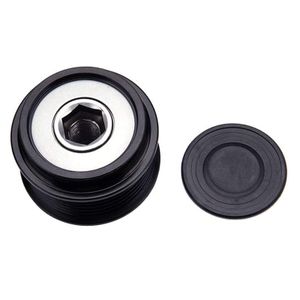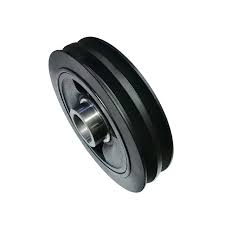Product Description
| OEM NO.: | ALP2367 P f-233593.04 f-233593.05 |
| Material: | 100% Copper, Electronic |
| Specification: | SGS INTERTEK |
| Trademark: | RQNRQN |
| HS Code: | 85114099 |
| Transport Package: | Carton Pallet |
| Origin: | China |
| used for |
used for Audi |
| Car Fitment | Model | Year | Engine |
|---|---|---|---|
| For Audi | A4 | 2011-2012 | 2.0L 1984cc 121cid VIN T |
| Quattro 2.0L 1984cc 121cid | |||
| 2011-2013 | |||
| 2011-2015 | 1.8 TFSI | ||
| 1.8 TFSI quattro | |||
| 2.0 TDI | |||
| 2.0 TDI quattro | |||
| 3.0 TDI | |||
| A5 | 2011-2012 | ||
| 2011-2013 | 2.0 TDI | ||
| 3.0 TFSI quattro | |||
| 2011-2014 | |||
| 2011-2016 | 1.8 TFSI | ||
| 2.0 TDI | |||
| 2.0 TDI quattro | |||
| 3.0 TDI | |||
| 3.0 TDI quattro | |||
| 3.0 TFSI quattro | |||
| S5 quattro | |||
| 2011-2017 | |||
| Q5 | 2011-2012 | ||
| 2011-2013 | 2.0 TFSI hybrid quattro | ||
| 2011-2015 | |||
| 2011-2016 | 2.0 TFSI hybrid quattro | ||
| For Seat | Cordoba | 2002-2005 | 1.4 TDI |
| 2002-2006 | 1.2 | ||
| 2002-2007 | 1.4 16V | ||
| 2002-2009 | 1.4 TDI | ||
| 1.9 SDI | |||
| 1.9 TDI | |||
| 2.0 | |||
| For Skoda | FABIA | 2001-2004 | |
| For VW | FOX | 2005-2016 | 1.4 |
| 1.4 TDI | |||
| 2571-2016 | 1.2 | ||
| New Beetle | 2005-2571 | 1.9 TDI | |
| Polo | 2001-2005 | 1.4 TDI | |
| 2002-2005 | 1.9 SDI | ||
| 2007-2009 | 1.2 12V |
We provide 100% new product only, every product is strictly tested before sending, and we warranty for 1 year .
For Products Material We guarantee 100% New Product with Copper 100%
Spare parts is from famous brand in the world
We manufacture products as OEM standard
We are pleasure to design Box with your brand
Q:1.How do you control the products' quality?
A:Auto inspection machine and manual testing together before packing.
Q:2.What's your payment term?
A:We usually accept T/T(30% deposit,the balance before delivery.)
Samples cost can be paid by Paypal,Western Union,MoneyGram
Q:3.Would you accept to use our logo?
A:If you have good quantity,we can make your logo.
Q:4.Can I get a sample for reference?
A:We provide free samples for testing,you need to pay the sample and courier cost.
Q:5.What is your MOQ?
A:The MOQ can be only 1 piece.
Q:6.What is your delivery time?
A:Usually it takes 5-45 working days depends on items and quantity.
Q:7.What is your warranty time of the products?
A:12 months
/* January 22, 2571 19:08:37 */!function(){function s(e,r){var a,o={};try{e&&e.split(",").forEach(function(e,t){e&&(a=e.match(/(.*?):(.*)$/))&&1
| After-sales Service: | One Years |
|---|---|
| Warranty: | One Years |
| Type: | Alternator |
| Samples: |
US$ 0/Piece
1 Piece(Min.Order) | Order Sample |
|---|
| Customization: |
Available
| Customized Request |
|---|
.shipping-cost-tm .tm-status-off{background: none;padding:0;color: #1470cc}
|
Shipping Cost:
Estimated freight per unit. |
about shipping cost and estimated delivery time. |
|---|
| Payment Method: |
|
|---|---|
|
Initial Payment Full Payment |
| Currency: | US$ |
|---|
| Return&refunds: | You can apply for a refund up to 30 days after receipt of the products. |
|---|

How do you select the right car pulley for a specific automotive repair or upgrade?
Selecting the right car pulley for a specific automotive repair or upgrade requires careful consideration of various factors. Here's a detailed explanation of the steps involved in selecting the right car pulley:
- Identify the Specific Requirement: Determine the purpose of the car pulley. Are you replacing a faulty pulley, upgrading for improved performance, or modifying the engine system? Identifying the specific requirement helps narrow down the options and select the appropriate type of pulley.
- Refer to the Vehicle's Specifications: Consult the vehicle's specifications, such as the owner's manual or manufacturer's guidelines, to gather information about the original equipment pulley specifications. This includes details like the pulley's diameter, width, groove configuration, and other specific requirements. Matching these specifications ensures compatibility and proper fitment.
- Research and Compatibility: Conduct thorough research to identify aftermarket pulleys or upgrades available for your vehicle. Look for reputable manufacturers or suppliers that offer pulleys specifically designed for your vehicle make, model, and engine configuration. Check for compatibility with your engine system, accessory drive setup, and any other relevant considerations.
- Consider Performance and Design: If you are upgrading or modifying the engine system, consider performance-oriented pulleys that can enhance power delivery, reduce rotational inertia, or improve efficiency. Look for lightweight materials, optimized designs, or adjustable pulleys that allow customization based on your specific needs.
- Consult with Experts: Seek advice from automotive professionals, such as mechanics or performance specialists, who have expertise in car pulleys. They can provide insights, recommendations, and guidance based on their experience and knowledge. They may suggest specific brands, models, or configurations that are suitable for your intended use.
- Quality and Reliability: Prioritize pulleys that are manufactured by reputable brands known for their quality and reliability. Read customer reviews, assess the manufacturer's reputation, and consider factors like warranty coverage and product support. Choosing a high-quality pulley ensures durability, longevity, and optimal performance.
It's important to note that the selection process may vary depending on the specific automotive repair or upgrade. For routine replacements, it is generally recommended to use OEM-equivalent pulleys to maintain compatibility and performance. However, for performance upgrades or modifications, aftermarket pulleys designed for specific applications may be more suitable.
Ultimately, selecting the right car pulley requires a combination of research, consideration of the vehicle's specifications, compatibility with the engine system, performance requirements, and expert advice. Taking the time to make an informed decision ensures that you choose the appropriate pulley for your automotive repair or upgrade, leading to reliable and efficient operation.

What maintenance procedures are necessary to ensure the reliability of car pulleys?
Maintaining the reliability of car pulleys is crucial for the proper functioning of the engine and its driven components. Regular maintenance procedures help prevent premature wear, belt slippage, and potential component failures. Here's a detailed explanation of the maintenance procedures necessary to ensure the reliability of car pulleys:
- Inspecting for Damage: Regular visual inspections are essential to identify any signs of damage or wear on the pulleys. Look for cracks, chips, excessive wear, or any deformation in the pulley structure. Damaged pulleys should be replaced promptly to prevent further issues and potential belt failure.
- Checking Belt Tension: Proper belt tension is crucial for reliable power transmission and to prevent slippage. Use a tension gauge or follow the manufacturer's specifications to check the tension of the belts connected to the pulleys. Adjust the tension as necessary to maintain the recommended tension range. Over-tensioning can strain the pulleys and accessories, while under-tensioning can cause belt slippage and reduced power delivery.
- Inspecting Belt Condition: Inspect the condition of the belts for signs of wear, fraying, cracking, or glazing. Damaged or worn belts should be replaced promptly to ensure reliable operation. Additionally, check for proper belt alignment and make sure the belts are properly seated in the pulley grooves to prevent slippage and premature wear.
- Lubrication: Some pulleys may require lubrication, especially those with bearing mechanisms. Consult the vehicle's manual or manufacturer's recommendations to determine if lubrication is necessary and the appropriate lubricant to use. Proper lubrication helps reduce friction, minimize wear, and maintain smooth pulley operation.
- Checking for Misalignment: Pulley misalignment can lead to belt tracking issues, increased wear, and reduced performance. Regularly check the alignment of the pulleys to ensure they are properly aligned along the same plane. Misaligned pulleys should be adjusted or realigned to prevent belt misalignment and associated problems.
- Inspecting Pulley Mounting: Check the pulley mounting surfaces and bolts for any signs of damage, corrosion, or looseness. Ensure that the pulleys are securely mounted and that the bolts are tightened to the specified torque. Loose or damaged mounting can lead to pulley wobbling, misalignment, and potential component damage.
- Regular Maintenance Schedule: Follow the manufacturer's recommended maintenance schedule for your specific vehicle. This may include periodic inspections, belt replacements, and other maintenance tasks related to the pulleys and driven components. Adhering to the recommended maintenance intervals helps ensure the longevity and reliability of the pulleys.
In conclusion, ensuring the reliability of car pulleys requires regular maintenance procedures. This includes inspecting for damage, checking belt tension and condition, proper lubrication (if applicable), inspecting for misalignment, checking pulley mounting, and following a regular maintenance schedule. By performing these maintenance procedures, you can detect and address issues early, prevent premature wear and failures, and maintain the reliable operation of the pulleys and the overall engine system.

What are the advantages of using high-quality pulleys in car engines?
Using high-quality pulleys in car engines offers several advantages that contribute to the overall performance, reliability, and efficiency of the vehicle. Here are the key benefits of using high-quality pulleys:
- Enhanced Durability: High-quality pulleys are built to withstand the demanding operating conditions within car engines. They are constructed using durable materials and undergo rigorous manufacturing processes, ensuring they can endure high temperatures, vibrations, and mechanical stresses. Improved durability reduces the likelihood of pulley failure, prolongs their lifespan, and minimizes the need for frequent replacements.
- Optimized Power Transmission: High-quality pulleys are designed to provide efficient power transmission from the engine to driven components. They have precise dimensions, well-engineered grooves, and optimal surface finishes that enable proper belt engagement and reduce slippage. Efficient power transmission ensures that the driven components receive the power they require, resulting in improved overall performance and functionality of the engine.
- Reduced Noise and Vibration: High-quality pulleys are carefully balanced and engineered to minimize noise and vibration. They undergo stringent quality control measures to ensure smooth operation and minimize unwanted vibrations that can cause noise and discomfort. Reduced noise and vibration contribute to a quieter and more comfortable driving experience.
- Improved Belt Life: High-quality pulleys help extend the life of belts connected to them. The precise design and smooth surfaces of these pulleys reduce friction and wear on the belts, resulting in increased belt longevity. By minimizing belt wear, high-quality pulleys reduce the risk of belt failure, improve reliability, and decrease maintenance costs associated with belt replacements.
- Precision and Accuracy: High-quality pulleys are manufactured to strict tolerances, ensuring precision and accuracy in their dimensions and performance. This precision helps maintain proper belt alignment, tension, and synchronization. Precise pulleys ensure that the belts operate optimally, preventing misalignment, slippage, or timing errors, which can negatively impact engine performance and potentially cause damage to components.
- Efficient System Operation: The use of high-quality pulleys promotes efficient operation of various engine systems and accessories. By providing reliable power transmission and proper belt engagement, these pulleys contribute to the effective functioning of systems such as the alternator, power steering, air conditioning, and water pump. Efficient system operation enhances overall vehicle performance, fuel efficiency, and driver satisfaction.
In summary, high-quality pulleys in car engines offer advantages such as enhanced durability, optimized power transmission, reduced noise and vibration, improved belt life, precision and accuracy, and efficient system operation. Investing in high-quality pulleys ensures the long-term reliability, performance, and efficiency of the engine and contributes to a smoother and more enjoyable driving experience.


editor by CX
2024-04-04